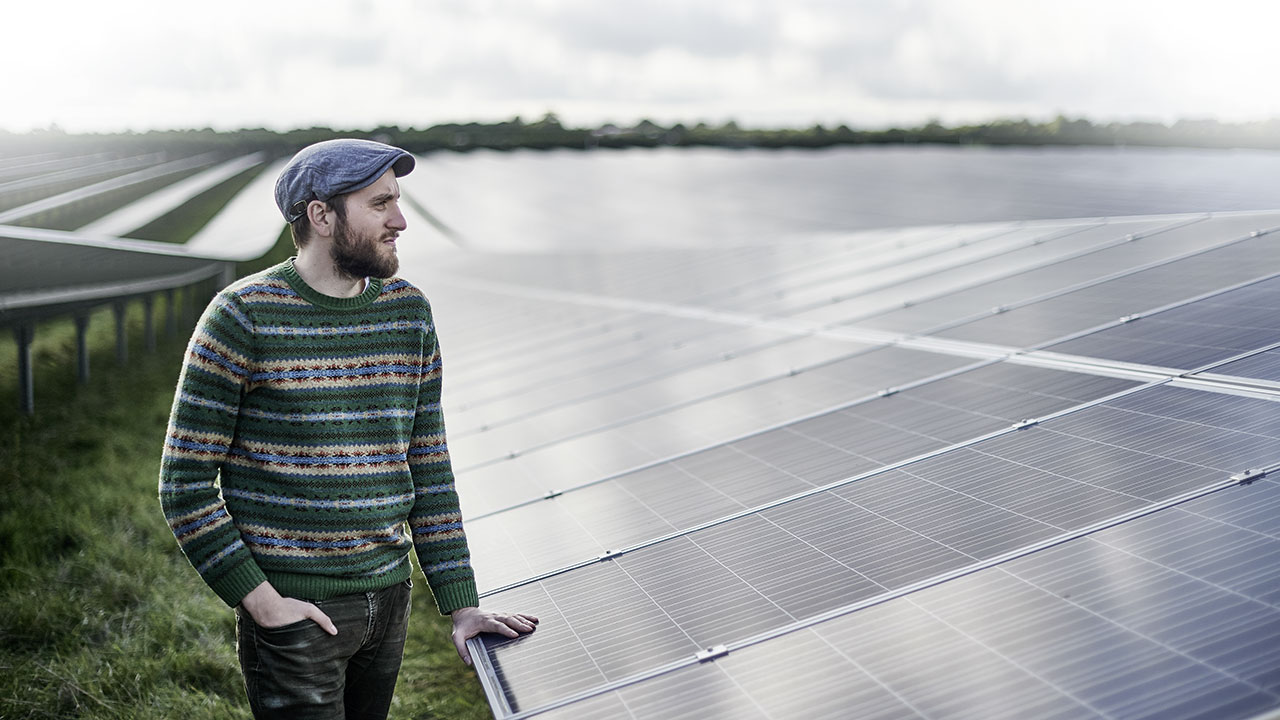
Real estate industry undergoing transformation
With digital planning expertise and a future-oriented mindset.

Saving resources and fossil fuels is a win-win situation thanks to M&P.
The energy transition to a CO2-neutral future not only requires ideological willingness on the part of society: new energy paths require a technological change – and for it to be financially viable. The construction and real estate industry has a key role to play in reconciling sustainability and climate targets with economic demands. The energy experts at M&P show how it can succeed: they are working with innovative ideas and digital expertise on an energy system that is climate-neutral AND economical.
People in developed countries are living through volatile, uncertain, complex and ambivalent times. Our professional and private lives are being shaped by the rapid developments in digitisation, the coronavirus pandemic, the war in Ukraine, the energy crisis, inflation and fears of a recession. By now, it should have become clear to all of us that the ecological and digital transformation of the construction industry, involving saving energy through energy efficiency, independence from fossil fuels and self-sufficient supply systems with renewable energies, has become a necessity for society as a whole.
There has recently been a change in thinking towards a holistic view in Germany when it comes to energy efficiency, too: in addition to considering energy consumption, the amount of greenhouse gas emissions over the course of complete life cycles, such as those of buildings (embodied carbon), now also plays an important role.

One of the most important measures in this context is the promotion of renewable energies. Solar energy, wind energy and biomass are examples of renewable energies that have been used more and more in recent years and already play an important role in energy supply. However, before blindly substituting the energy supply of buildings with renewable energies, the focus should be on reducing energy consumption through energy efficiency measures. Considerable cost and CO2 savings can be achieved in this way – often within a very short time.
A wide variety of approaches, such as new smart building technologies and energy management, as well as classic control technology, can be used. Setting consistent emission reduction targets and implementing appropriate measures are further significant steps towards the energy transition. The promotion of renewable energies, emissions trading and CO2 pricing are instruments that help the achievement of targets, while energy efficiency and green energy generation using new technologies pave the way to CO2 neutrality.
Strategic technological transformation is a continuous process. For it to be successful, society must have a joint vision and shared will to drive change. Investing in research and development, education and training and creating a favourable policy and regulatory environment are important steps to support strategic technological change.
The fact that many companies are only willing to change technology for cost reasons should not be seen as an obstacle – on the contrary, in order to prevent the use of supposedly cheaper, but environmentally harmful, technologies for business reasons in the future, it is essential that technological change is affordable for all.
Through the use of renewable energies and energy efficiency measures, companies can reduce their emissions while at the same time improving their competitiveness. Investing in green technologies and projects can help promote the transition to a sustainable economy in all sectors. The construction and real estate industry is becoming an important player in the energy transition: buildings are still responsible for a third of global greenhouse gas emissions.
The high consumption gives rise to great potential for energy efficiency and transformation of the energy supply, which M&P fully exploits for its customers – over the entire life cycle of a building.
At the same time, ESG (environmental, social, governance) criteria are playing an increasingly important role in the real estate industry. As a result, sustainable and energy-efficient buildings are becoming even more financially attractive, because they meet both growing customer demands and increasing legal requirements.

By implementing ESG measures, real estate and industrial companies can not only reduce the CO2 footprint of their portfolio, but also increase the value of their property or product – ecological and economical benefit in equal measure. Specialised service providers such as M&P are already supporting the implementation of measures and the tracking of progress relating to ESG. The technological transformation in buildings is in full swing – for us, it is the key to a CO2-neutral and, at the same time, cost-efficient future.

With digital planning expertise and a future-oriented mindset.

ESG as a success factor for sustainable corporate development – supported by M&P.

Highly efficient and flexible usage concepts from M&P.